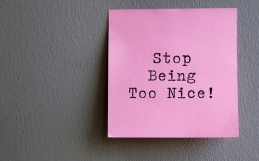Why being yourself is better for all of your relationships.
Whether you realize it or not, our ancestors and families shape a large part of who we become. You wouldn’t be here right now without family or caretakers that helped you survive; to be alive is to be in a relationship with others. We are also born with a level of Self that desires to grow throughout our lives. Our degree of Self can change throughout our lives depending on our life experiences and efforts to mature within those very relationships. Understanding that we are individuals who are always connected to others is essential to acknowledge.
The emotional interdependence within families and communities is not inherently wrong; humans, after all, evolved by promoting the cooperation necessary for families to protect their members. However, issues arise when we are so interdependent that we lose ourselves in our relationships. We all have the very human struggle of navigating our pull for individuality and togetherness. We see this at many stages in our development; the force to be our own person starts early in life.
Even though being close to those we care about feels so good during quiet times, there is a problematic side. We struggle the most to be ourselves when the pushback from our families, culture, society, and others are too strong. We may lose ourselves while in relationships with others by accommodating, giving in, and looking to others for answers. We also might become allergic to the pull for togetherness by rebelling, conflict, or distancing. When we only connect with others by losing ourselves in the sense of comfort they provide, we become a non-self. Believing we will be complete and whole while we are accepted by our family, lover, and friends, all the while losing our individuality.
If we lean towards or away from relationships to manage our anxiety of standing on our own, we will be more reactive and sensitive to others. The less of a Self we have in our relationships, the more prone we are to conflict, distance, reactivity, and cut-off. The very things we do to manage our anxiety about the relationships in our lives can be the same things that create more chaos in our relationships.
Systems thinking explains the complex interactions within families and important relationships. Family systems theory conceptualizes the family as an emotional unit. According to this theory, families and their members are emotionally connected; each member affects the others’ thoughts, feelings, and actions. For example, each family member desires the family’s attention, approval, and support, and they emotionally react to each other’s expectations, hurts, and upsets. This reactivity and connection make family members’ general functioning codependent in nature.
As pressure from life difficulties, anxiety, and stress arise, the emotional connectedness of a family can become more stressful than soothing. For example, when one person in a family gets anxious, their anxiety can increase by spreading infectiously around the family system. This can lead family members to feel overwhelmed, secluded, or emotionally out of control. The family member who does the most accommodating takes on the family’s anxiety and is, therefore, the most vulnerable to depression, addiction, affairs, or physical illness. Becoming genuinely informed about how the emotional unit works in one’s own family, workspace, and social networks offers new, more effective options for solving problems in each of these areas.
So, when we find ourselves stuck in conflictual or ineffectual patterns of interaction with the people we care about, it can blind us from the truth. Often, we look to others to make the changes that will interrupt those patterns that stress us out so much. However, this is a set-up for even more anxiety, loss of Self, and helplessness, as the people we love are just as stuck and lost as we are. The more we look for others to complete ourselves, the more locked into familiar, automatic, and unconscious patterns we get. Our focus is on others and what they need from us, and less on ourselves and our own responsibilities. The less we are focused on ourselves and our reactions, the more we are attuned to others’ facial expressions, tone of voice, body posture, and energy. This attunement has us perceiving threats without consciously realizing them. When we perceive a threat, real or imagined, our amygdala, the most primitive part of our brains, gets activated. This leads us to automatically react by verbally attacking, jumping in to fix things, avoiding people, saying yes when we want to say no, distancing, blaming, etc.
As humans, our reactive behaviors are predictable and more prominent when we are more for the group than ourselves. The more emotionally dependent we are, the more uncomfortable we are around others’ discomfort, leading our brains to signal us to take action or run away. Therefore, contrary to the belief that if we focus on ourselves, it makes us selfish, it actually helps us in our closest relationships. If we work on managing our own reactivity, becoming more aware of our patterns, and developing our thinking during challenging times, the more of ourselves we can grow. If we learn to complete ourselves, which means understanding our values, principles, responsibilities, and goals, our relationships will feel less reactive and be more meaningful.
Did you enjoy reading this article?
Once a week I send out a newsletter with new articles and unique content for readers. It is my way of staying in touch with you and giving you free advice based on some important topics.
Click here to sign up for my newsletter.





